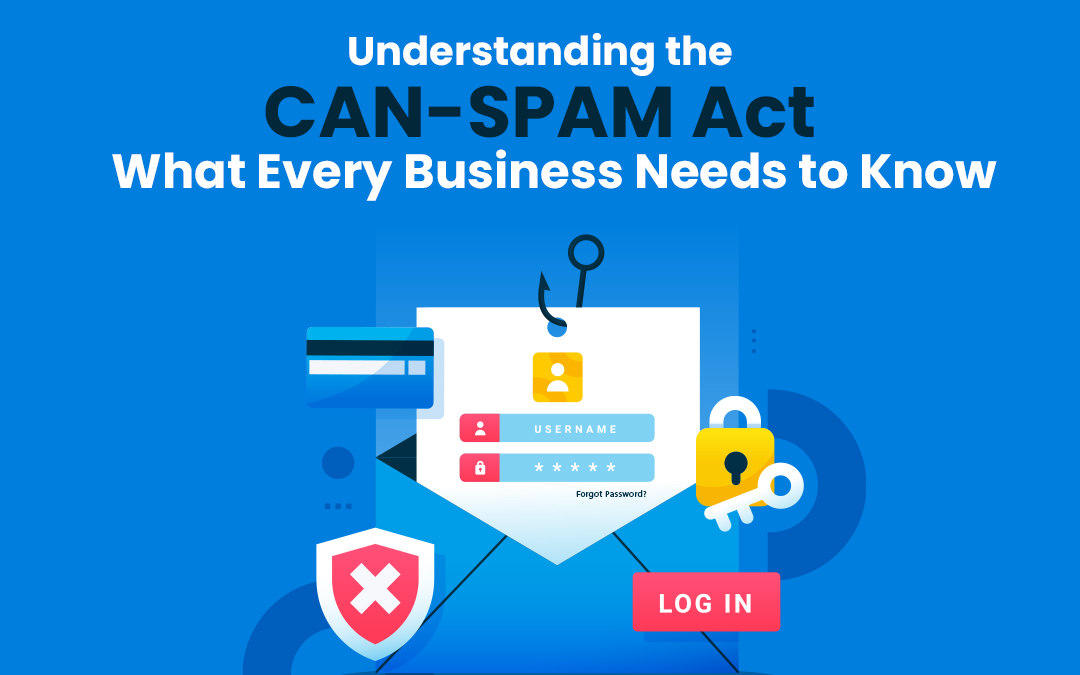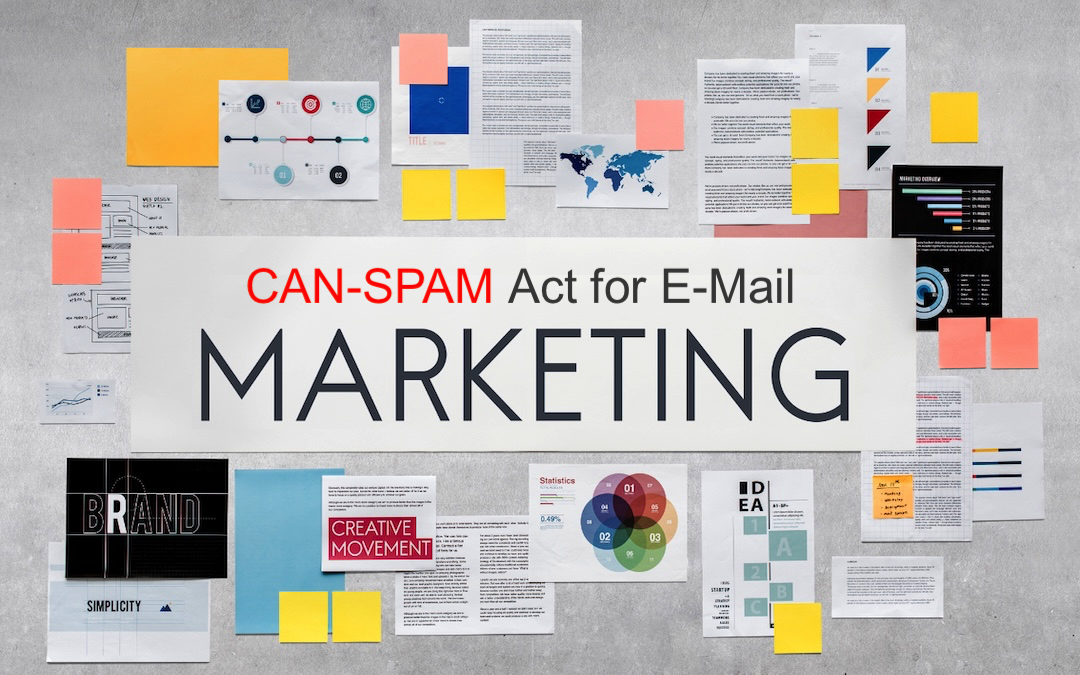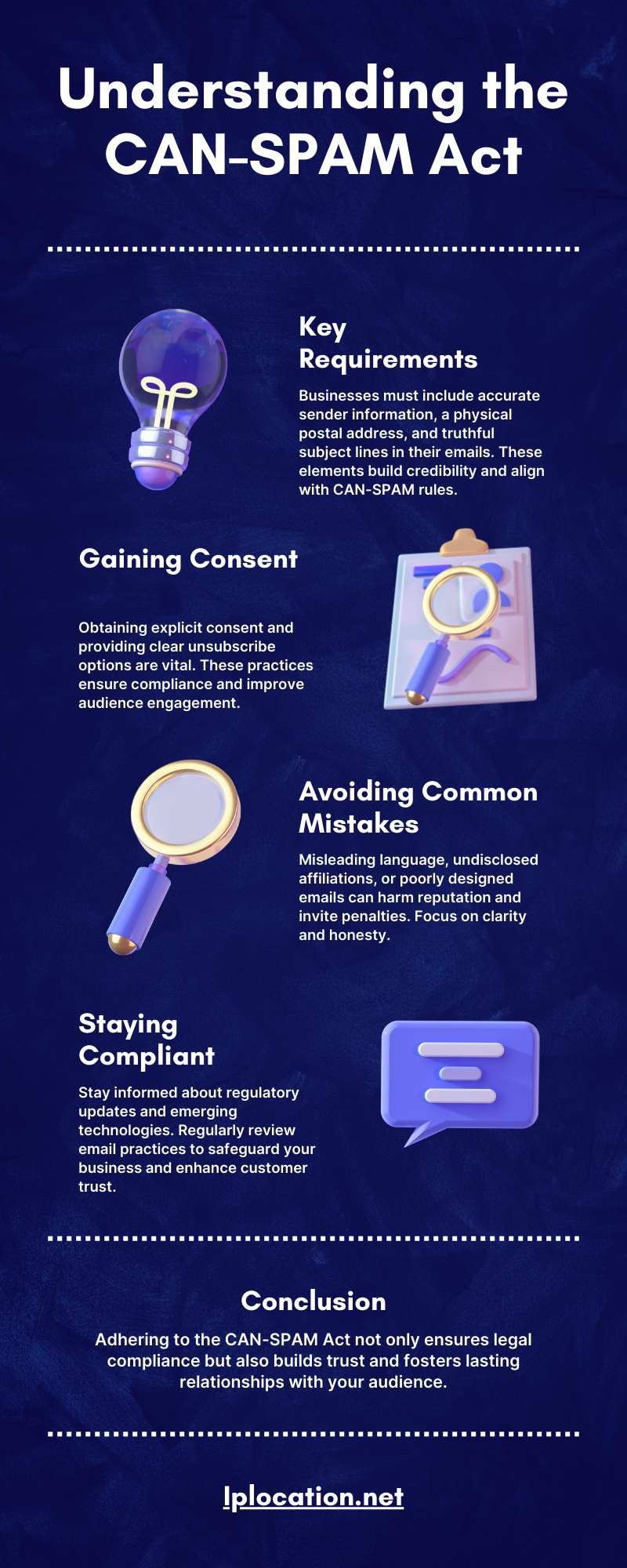
Email marketing is a cornerstone of modern business communication. It allows companies to connect directly with customers, fostering loyalty and driving sales. However, with great power comes great responsibility. The CAN-SPAM Act was introduced to regulate commercial email practices and protect consumers from unwanted or deceptive messages. For businesses, understanding this law isn’t just a legal requirement—it’s essential for maintaining trust and avoiding significant penalties.
Failure to comply with the CAN-SPAM Act can have serious consequences. Businesses face fines of up to $43,792 for each violation, a cost that can escalate rapidly for large-scale campaigns. Beyond monetary penalties, there’s the risk of reputational damage. Being labeled as a spammer can erode customer trust, a loss that’s challenging to recover from. Businesses that adhere to these regulations not only protect themselves but also demonstrate respect for their audience, which fosters long-term relationships.

The Fundamentals of the CAN-SPAM Act
At its core, the CAN-SPAM Act is about transparency and honesty in email communication. When sending marketing emails, businesses must clearly identify themselves as the sender. This means using accurate "From" and "Reply-To" information. Misleading headers or attempts to mask identity can quickly lead to non-compliance issues.
Another crucial aspect of the law is the inclusion of a physical postal address in every email. This might seem like a small detail, but it adds a layer of authenticity and trustworthiness to your communications. Customers are more likely to engage with businesses they perceive as legitimate.

Subject lines also play a pivotal role. They must accurately reflect the content of the email. Deceptive or misleading subject lines not only annoy recipients but also violate CAN-SPAM rules, leading to potential complaints and penalties.
Building a Strong Email Marketing Strategy
One of the keys to successful and compliant email marketing is obtaining explicit consent from your audience. Gone are the days of adding anyone and everyone to your mailing list. Today, subscribers must opt-in to receive communications. This not only ensures compliance but also increases the likelihood that your emails will be welcomed and read.
Equally important is giving recipients an easy way to opt-out. Including a clear unsubscribe link in every email is non-negotiable. Ignoring unsubscribe requests—or making it difficult to opt out—can quickly land your business in hot water.

Monitoring your email performance is another best practice. Tracking metrics like open rates and click-through rates provides valuable insights into what works and what doesn’t. It also ensures you’re engaging your audience effectively while staying compliant.
Avoiding Common Pitfalls
Compliance isn’t just about following the rules; it’s about avoiding the traps that many businesses inadvertently fall into. Misleading language, often in the form of clickbait, can lead to complaints and harm your reputation. Transparency is critical, especially when promoting affiliate products. Failing to disclose partnerships can make your emails seem dishonest.

Design and content also matter. Emails should be clear, concise, and visually appealing while adhering to all regulations. A cluttered or confusing email can turn off recipients and increase the likelihood of complaints.
Staying Ahead of Regulatory Changes
The digital marketing landscape is constantly evolving. Emerging technologies like AI and SMS marketing offer new opportunities but also bring additional regulatory considerations. Staying informed about updates to the CAN-SPAM Act and other relevant laws is essential. Businesses that proactively adapt to changes not only avoid penalties but also position themselves as leaders in their industry.

Final Thoughts
The CAN-SPAM Act is more than just a legal requirement—it’s a framework for building trust with your audience. By adhering to its principles, businesses can protect themselves from penalties and foster meaningful, long-term customer relationships.
Start by reviewing your current email practices. Ensure that your communications are transparent, respectful, and in line with regulations. Regularly educate your team on compliance requirements and stay informed about updates. In doing so, you’ll not only avoid fines but also enhance your reputation and effectiveness in email marketing. Compliance isn’t a one-time effort—it’s an ongoing commitment to ethical communication. Your audience will thank you, and your business will thrive as a result.
Share this post
Leave a comment
All comments are moderated. Spammy and bot submitted comments are deleted. Please submit the comments that are helpful to others, and we'll approve your comments. A comment that includes outbound link will only be approved if the content is relevant to the topic, and has some value to our readers.



Comments (0)
No comment